I burst into tears when I learned that the former President of the Soviet Union, Mikhail Gorbachev, had passed away. Not one for immediate visceral processing, my reaction surprised me.
Why did this news feel so personal, as I stared at a deeply familiar image of a face I hadn't seen in years? This human is an integral part of the story of my life.
When someone asks me where I'm from and why I'm in the United States, my answer often becomes a socio-political-geo-anthropological lesson. Gorbachev is a key player in the story.
Once I have mapped the tiny country of Moldova as bordered by Ukraine in the northeast and Romania in the southwest, I explain how Gorbachev enters the narrative with "glasnost." It's a phrase he introduced in the '80s, meaning openness and signifying a move to freedom of press in the Soviet Union.
Here, I usually point out unintended consequences. "Glasnost" spurred on the exploration of a strong national Moldovan identity, often at the expense of other ethnic groups. After briefly digressing to explain both Judaism and antisemitism, I explain that my parents, ethnically identifying as Jewish, knew that it was unsafe for us to remain in our home country.
Once again, Gorbachev played a key role. He allowed Jewish people to leave the Soviet Union.
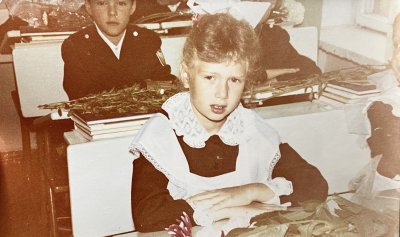
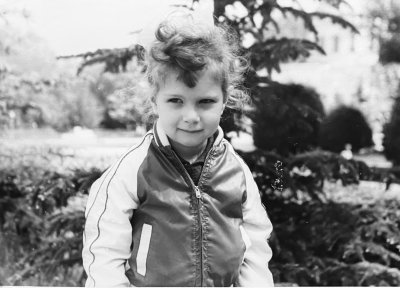
So I hold a certain awe, internalized perhaps from the way my parents uttered Gorbachev's name, back when I was growing up. A ten-year-old's respect for both an elder and a leader who wanted to create change. There is also deep gratitude for a man who opened borders during his time as a Soviet leader.
In my life, that meant starting anew in the U.S. at the age of 10, and having to decipher a foreign language and culture while processing the loss of a geographic and an emotional home. Conversely, it has also meant discovering Judaism, which had been forbidden during the Communist regime.
To help me avoid discrimination in school and on the streets, my parents didn't talk about our Jewish heritage when I was growing up. I had no idea that Judaism was an ethnicity, a culture and a religion. I didn't know about my Jewish roots. Even though my great-grandfather was a Rabbi before the Soviet rule, religious practices weren't allowed. As a result, I had no concept of a single Jewish holiday, no rituals to associate with my heritage.
Once in the U.S., due to the incredible support of the local Jewish federation, I attended a private Jewish school on a scholarship. Classes were taught in Hebrew and English, and while the languages were equally foreign to me, I slowly began to make sense of both. I learned about Jewish holidays and started teaching our traditions to my family. I had a Bat Mitzvah, a Jewish coming of age ceremony. Learning about my heritage helped me understand the fuller story of who I am and my roots.
Prior to leaving the USSR, I regarded borders as impermeable. It didn't matter if this was nearby Romania or faraway England. The two were equally exotic and unreachable. Following our emigration, I recognize the privilege of travel, as well as the magic of deeply knowing people from around the world.
Gorbachev changed that reality for me, and for thousands of others.
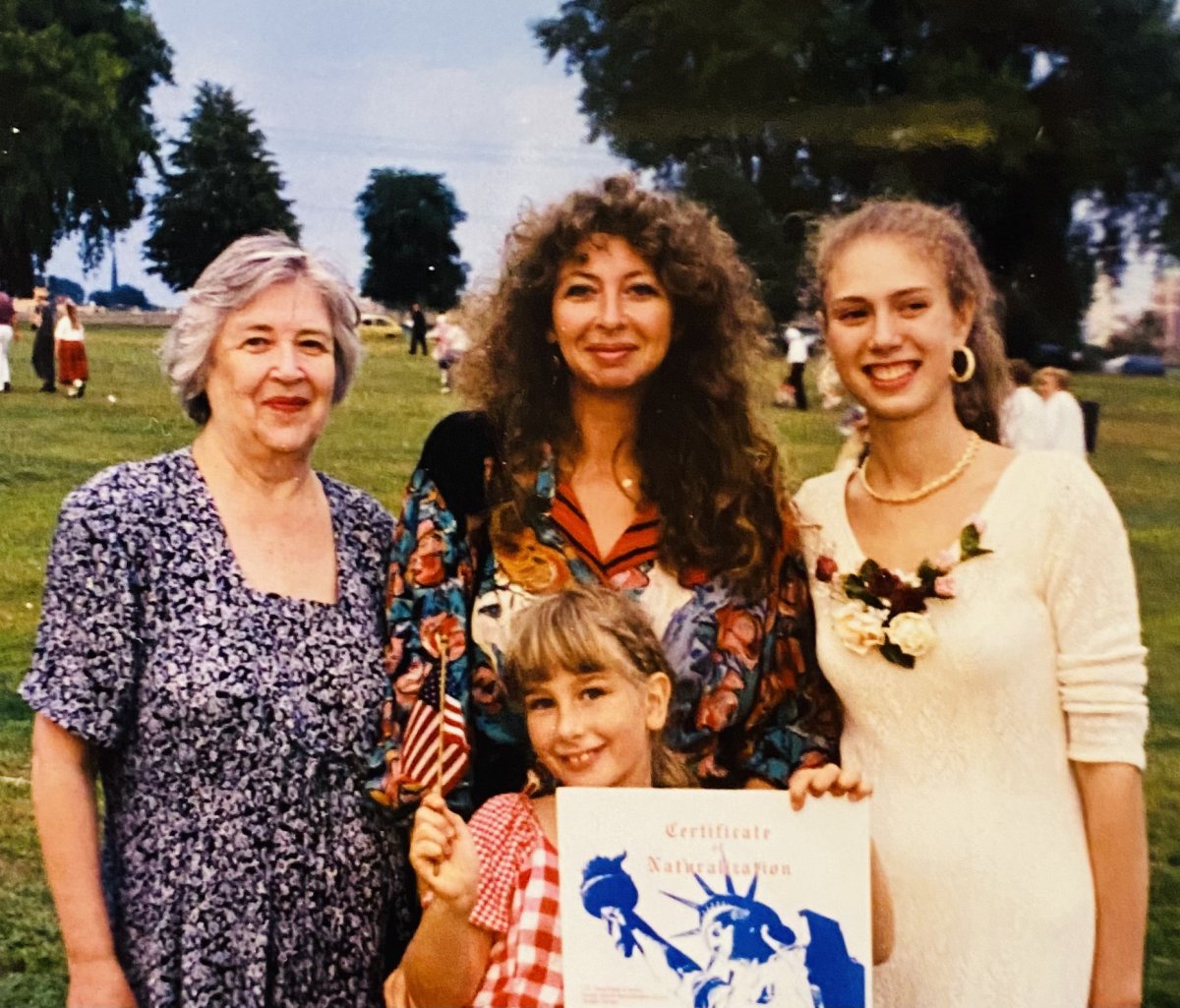
Of course, in many ways, Gorbachev is simply a figurehead, a symbol for the 10-year-old me, back in 1989. In real life, it takes a whole cadre of humans to create change; political and social leaders may simply be the most visible. Among them were The Hebrew Immigrant Aid Society (HIAS) and local Jewish federations who lobbied the United States government to admit Jews as refugees and Washington State's Senator Henry Jackson, who played a role in the shift in U.S. foreign policy. There were also significant efforts from activists in the Soviet Jewry movement, both in America and the Soviet Union, who fought for Soviet Jews to have the right to emigrate. Ultimately, President Ronald Reagan brought up the case of Soviet Jews whenever Gorbachev was involved in joint talks. This is only a partial list of key players and predominantly on the U.S. side.
For many, Gorbachev is a controversial figure. Fellow Russian and non-Russian speakers from different parts of the former USSR, as well as from Russia, have different vantage points and stories of their own.
I discovered some of these stories when I spent time in Russia. My academic research and my informal conversations led to new insights.
My research focused on cultural diversity in literature. "What international texts are taught in schools?" I wondered, and conducted interviews both in Russia and the U.S. on curriculum choices by school districts, principals, and individual teachers. Ultimately, these conversations taught me that there were more similarities between the two countries than differences.
At the same time, my informal conversations pointed at the daily realities of living in the former USSR. For many Russians life became harder after Gorbachev helped usher in the fall of the Soviet Union.
"It's much less safe today," explained a family member of the room I was subletting in Moscow in 2001. "During the Soviet times, we let our small kids play outside without a care. Now, that would be unthinkable." They described rising living costs, issues with regulation of businesses and corruption. "We were much better off during the Soviet times."
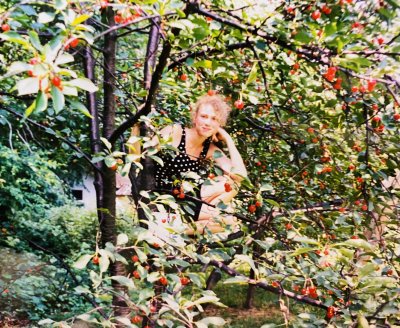

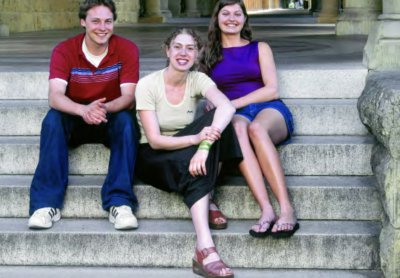
It wasn't just talk; the family used newspapers as toilet paper.
Visiting Moldova in 2003, an independent country as of 1991, my former classmates' stories were even harsher. They had lived through the Transnistrian War after which a ceasefire created uneasy peace between Moldova and the breakaway region of Transnistria. The classmates I reconnected with had college degrees in education, economics and literature, yet all but one worked in one way or another in the then budding mobile phone industry, the only industry outside of wine production that was booming. With the exception of one policeman, the rest were either selling or fixing cell phones. Moldova was one of the poorest countries in the former USSR.
I'm not sure what trajectories my life would have taken had my family and I stayed. How would we have fared in the war and the economic crises? What would I know of my identity, its complexity and rich history?
There is no way to know the answers to these questions.
What I do know is that in the U.S., I learned to believe in myself and my potential. When I applied to college, I didn't worry that I may be denied admission due to my ethnicity, as both my parents had, multiple times.
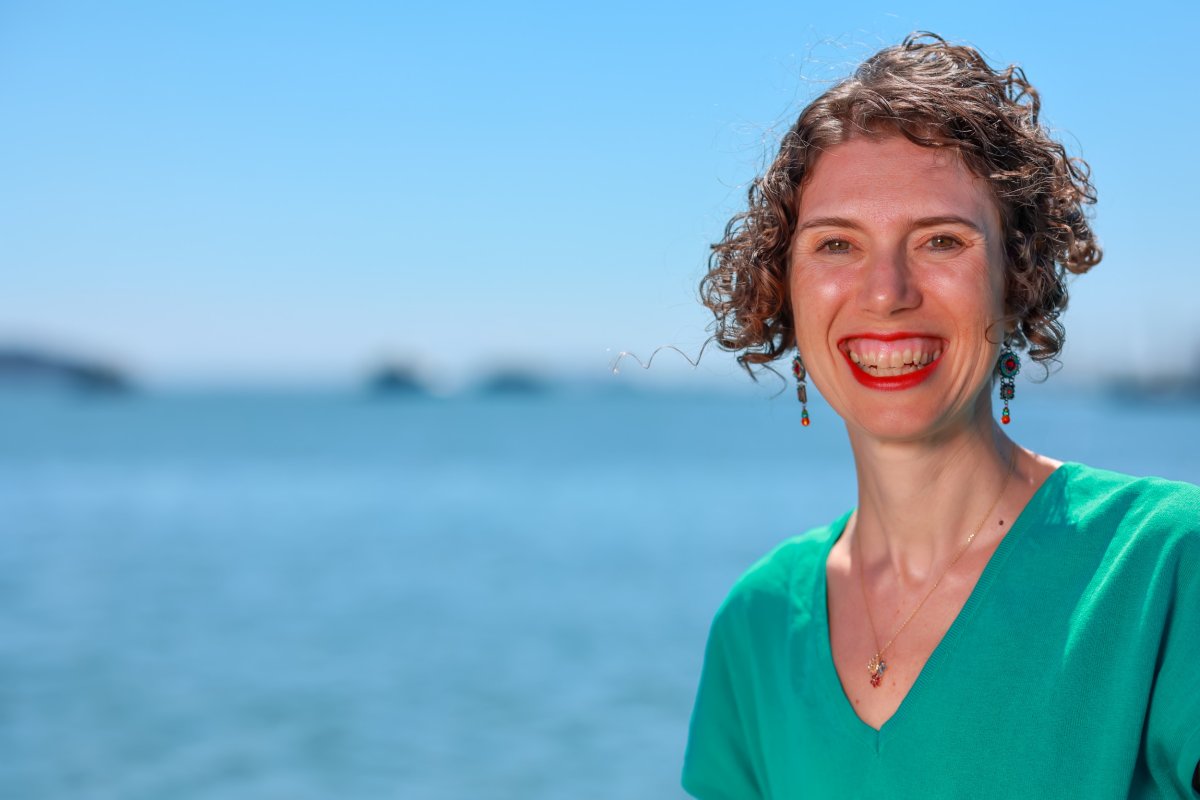
I followed my dreams. I took art classes. To become proficient in Spanish, I found grants that let me travel abroad, and make that dream a reality. A believer in the power of poetry, I found mentors who did not ask me about my ethnicity or economic status before taking me under their wing.
Living in America has enabled me to become a high school teacher and teach kids from around the world. I focus on their acquisition of the English language, their continued learning, celebration and pride in their own cultures and heritage, and respect and understanding for those of others.
The doors that Gorbachev and many, many others have opened for me years ago gave me the gift of discovering and respecting my roots, while also celebrating other cultures and traditions. Humbled and grateful, I'm still walking through open doors, while also opening doors for others.
Vlada Teper is a writer and educator from Moldova. A former Fulbright Scholar in Russia, Teper is the founder of Inspiring Multicultural Understanding (IMU) Peace Club. She is currently working on a Memoir. You can learn more at vladateper.com and follow her on Twitter @VladaTeper.
All views expressed in this article are the author's own.
Uncommon Knowledge
Newsweek is committed to challenging conventional wisdom and finding connections in the search for common ground.
Newsweek is committed to challenging conventional wisdom and finding connections in the search for common ground.
About the writer
To read how Newsweek uses AI as a newsroom tool, Click here.








